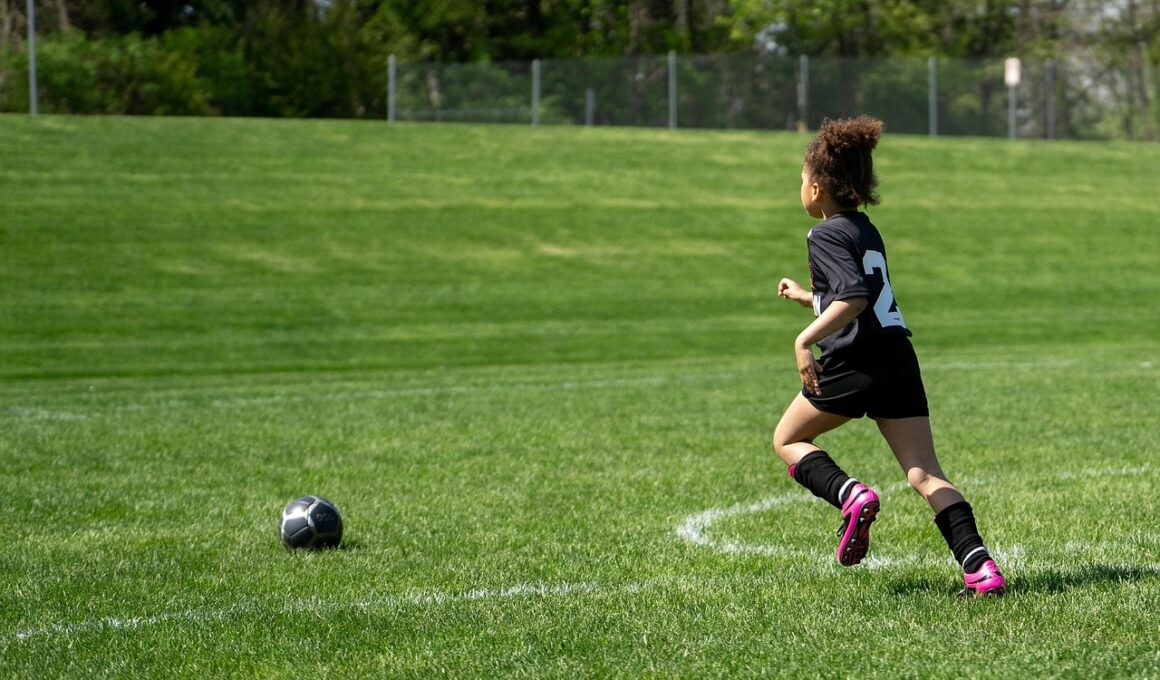Youth Athletic Competitions and Community Building
Youth athletic competitions serve as a vital platform for engaged community building. Through organized events, local organizations bring together young athletes to participate in various sports, helping them develop their physical skills and sportsmanship. These competitions foster a sense of belonging among youth participants, encouraging teamwork and collaboration. They also promote friendships that may last a lifetime. Many local communities come to life during these events, drawing spectators and families who cheer on the young athletes. This collective experience of supporting one another creates a vibrant atmosphere where everyone can connect. Moreover, through athletic competitions, communities are reminded of the importance of physical health and wellness. Participation in sports not only improves physical fitness but also enhances mental resilience, which is crucial for young individuals. Furthermore, these events provide opportunities for volunteers and local businesses to contribute, creating a shared responsibility and pride in the community’s success. Ultimately, engaging youth in athletics enriches the local culture, demonstrating the power of sports as a tool for positive community impact.
In addition to the athletic skills learned, competitions also teach valuable life lessons. Participants learn about dedication, discipline, and hard work—qualities that will benefit them far beyond the sporting field. Those who compete often understand the importance of setting goals and working towards them, a concept that applies to every area of life, including academics and future careers. The structure of competitions promotes accountability and the ability to adapt when facing challenges. This adaptability is crucial in today’s ever-changing world, where flexibility and resilience are prized traits. Families, coaches, and peers rally around the young athletes, offering support and encouragement, which fosters a nurturing environment critical for success. Engagement in these competitions also stimulates youth interest in lifelong fitness, sparking passions that they may pursue into adulthood. Many participating youths go on to participate in community sports and wellness programs, further deepening their involvement. Additionally, this atmosphere of mutual support during competitions nurtures empathy and fosters important relationships among diverse groups. This blend of fun, learning, and community serves to engrain these values deeply into the heart of every participant during athletic competitions.
The Role of Coaches in Community Competitions
Coaches play an essential role in shaping the experience of youth athletes within community competitions. They provide guidance, mentorship, and support, not only helping athletes improve performance but fostering personal growth as well. Good coaches serve as positive role models, demonstrating the importance of integrity, respect, and sportsmanship, translating these qualities into everyday life. Through their encouragement, coaches help build the confidence of young athletes, empowering them to push their limits and strive for excellence. Furthermore, the interactions coaches have with athletes inspire a sense of community and belonging, inviting all to participate regardless of skill level. Coaches often recognize potential in their students, identifying the unique qualities that each young athlete possesses. This personalized attention fosters deeper connections and a supportive network within the team. Additionally, coaches often collaborate with parents to reinforce positive habits both at home and in practice. This holistic approach ensures that young athletes not only excel in their chosen sports but also contribute to the community fabric, strengthening relationships and creating a lasting impact on their development.
To ensure a successful experience in competitions, communities find it essential to provide equal opportunities for all athletes. Many organizations work diligently to offer free or accessible sports clinics, allowing youth from various backgrounds to participate. When young athletes are given the chance to compete, they unleash their potential professionally and personally. Equitable access to facilities and resources helps foster inclusivity, ensuring no child feels excluded based on socio-economic status. Communities can establish sponsorship or partnership programs with businesses to support these initiatives, funding equipment and participation fees. When diverse young athletes unite, the relationships formed transcend social barriers, leading to a stronger community identity. Initiatives that promote inclusion also educate families about the importance of community support for youth athletics, encouraging broader participation. This collective investment in youth sports results in a growth mindset, equipping future generations with the tools they need to thrive. As athletes emerge from starting points with newfound skills, they become more engaged citizens, utilizing their abilities to uplift their community as a whole. Thus, youth athletics emerge as an essential vehicle for social change and empowerment across communities.
The Impact of Volunteer Support
Volunteers are the backbone of community youth athletic competitions, offering countless hours of support that often go unseen but are crucial. They assist with event organization, fundraising, coaching, and administration. Their dedication fuels the success of competitions and strengthens community bonds, with everyone from retired athletes to high school students participating. Volunteering offers opportunities for individuals to give back while fostering connections among families, schools, and local organizations. The diverse skill sets that volunteers bring can significantly impact the experience of young athletes, be it through logistical support or creating a welcoming environment. This spirit of volunteerism instills a deeper understanding of community values in youth participants, making competition day not just about athletic prowess but also about teamwork and solidarity. Practicing the act of volunteering encourages youth not only to appreciate the efforts surrounding their participation but also to consider future contributions. Consequently, many young athletes are inspired to embrace community engagement long after their competition days are over. This cycle of positive reinforcement illustrates how integral volunteers are in enhancing the overall spirit and success of athletic competitions.
The sense of pride emanating from local youth competitions not only boosts morale but contributes significantly to community identity. These events often draw large crowds, encouraging local businesses to participate actively in sponsorships and promotions. This symbiotic relationship creates a vibrant fundraising ecosystem that supports both the competitors and the community. Local establishments may offer discounts or promotions on event days, strengthening connections with the participating families. Furthermore, as youth become more engaged in athletics, it promotes a culture of health and fitness within the community. Families attending events are often inspired to engage in sports activities themselves, leading to healthier lifestyles all around. Successful youth athletes frequently return to their communities as role models, emphasizing dedication and perseverance. Highlighting their accomplishments can cultivate a strong narrative of community pride and resilience as the youth compete against unofficial rivals. This enthusiasm encourages younger generations to get involved in wanting to compete, creating a legacy of achievement. Ultimately, this foundation promotes an ongoing cycle of encouragement, support, and accomplishment that further enriches community life.
Conclusion: The Future of Youth Athletics
Looking to the future, youth athletic competitions will continue to play a critical role in fostering community engagement and development. Innovations in sports technology and access to facilities serve to create an inclusive environment for young athletes, ensuring that future generations remain active and engaged. Moreover, the growing emphasis on mental health and wellness aligns with the ideals of sportsmanship taught through athletics. As communities adapt to changing needs, new programs will emerge to encourage continued participation in sports. Events must strive for diversity, offering programs that cater to various skill levels and interests. It is crucial to recognize the importance of leadership roles, ensuring that those in positions of influence champion inclusivity and the spirit of competition. As communities integrate the teachings from athletics into larger frameworks, the impact will ripple across societal values. Embracing youth athletics will, therefore, foster champions not just in sports but in life, cultivating future leaders who value teamwork, resilience, and empathy. The essence of youth athletic competitions transcends trophies and medals and indeed lies in community connection, growth, and empowerment.
As the dialogue around youth athletics continues to expand, ongoing community involvement remains paramount. Encouraging local and regional collaborations can pave the way for impactful sponsorships and initiatives that truly make a difference. Exploring partnerships between schools, local organizations, and businesses can lead to innovative approaches in how competitions are designed and executed. Therefore, community centers may begin to serve as hubs for training activities, fostering more accessible environments for young athletes. Being mindful of weather conditions, local communities can invest in multi-use facilities that allow for broader participation across disciplines. Sharing success stories from previous competitions can inspire richer engagement from diverse groups. As these tiers of collaboration strengthen, it will ultimately enrich the competitive landscape available to youth. Through these proactive measures, the future of youth athletic competitions can become increasingly promising, ensuring opportunities for everyone. As young athletes learn to navigate challenges through sport, they demonstrate incredible potential to create meaningful social impact, showcasing their leadership within their communities. When empowered, youth discover that athletics is more than competition; it becomes a launchpad for connecting with one another, supporting collective growth, and developing lifelong friendships.


